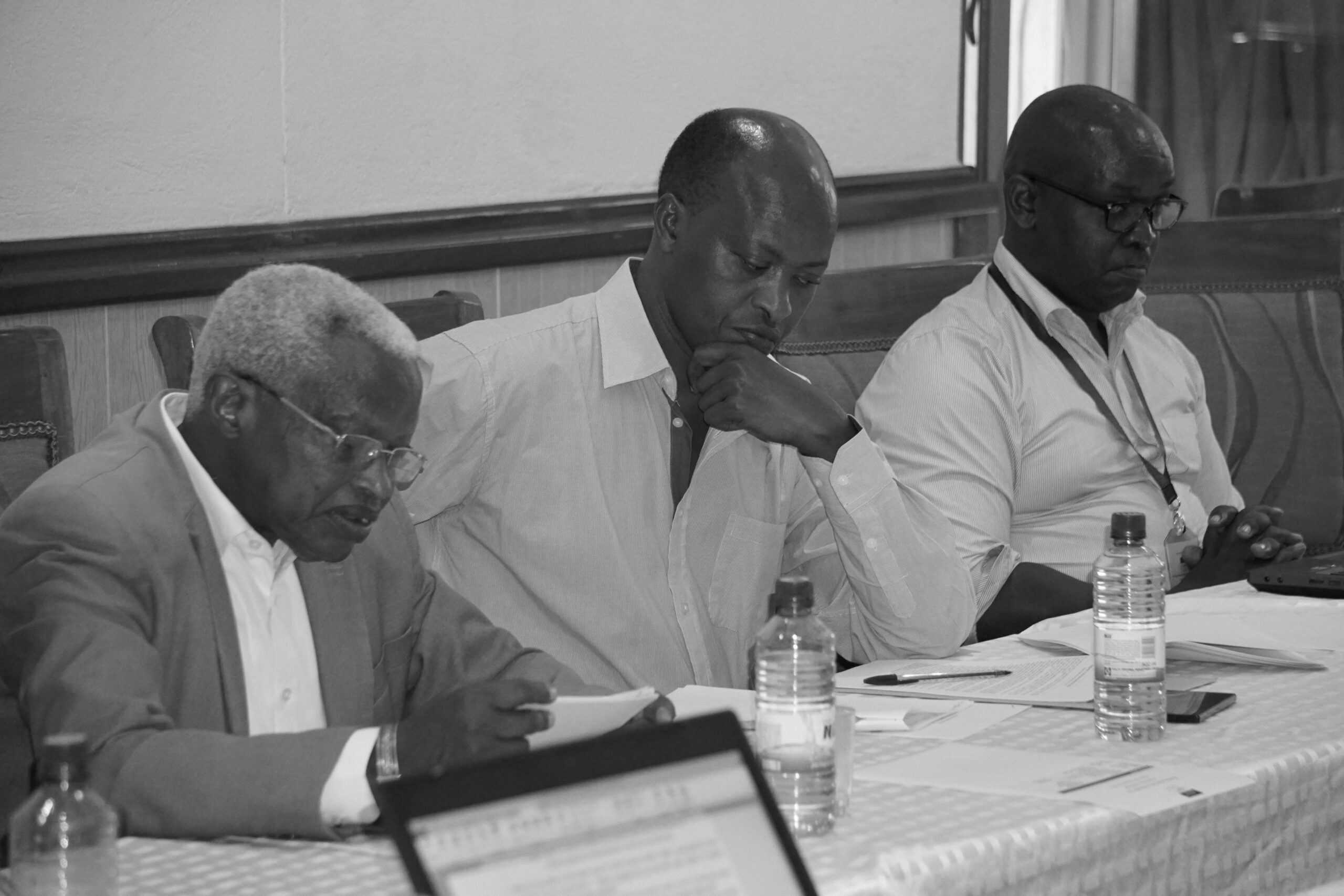In line with its Societal Healing and Participatory Governance program, NAR uses participatory action research (PAR) methods to identify, examine, discuss and share key challenges to peace and reinforce and encourage citizen participation as foundation for effective decision-making and good governance.
It is within this regard that a technical meeting that brought together a group of experts and NAR’s research team to discuss and modify the research proposal on civil society participation and citizen engagement.
During this meeting Jean Paul Safari, a research fellow at NAR shared a presentation on the key aspects of the research proposal and its expectations. He noted that the study on Civil Society and Citizen Participation in Rwanda was organized as a follow up on the previously concluded research on Governing with and for Citizens: Lessons from Post – Genocide Rwanda.
“The study intends to examine stakeholders’ (citizens, government, other CSOs, private sector and donors) perspectives and expectations of the relationship between civil society and citizens, explore the existing CSOs mechanisms that have been in place to engage citizens in decision-making processes and analyse how these mechanisms of engagement and the interactions between CSOs and stakeholders influence citizen participation in decision making processes” he added.
By engaging reputable stakeholders representing government institutions, civil society organizations and academia, NAR’s team of researchers aims at seeking guidance on how best to improve the methodology and data collection tools before embarking on field research activities.
Professor Deo Mbonyinkebe, a retired professor of Sociology observed that there is no universally agreed upon definition of CS0’s. Rwanda has no specific law governing CSO’s. He went on to suggest that “Therefore researchers have the responsibility to suggest an operating definition of the concept appropriate in the Rwandan context”
According to Dr. Felicien Usengumukiza, the Director of Research at Rwanda Governance Board (RGB) he asserted that RGB was is well positioned to help identify the target organizations for this research to be conducted.
The research team was tasked to fine-tune the methodology, tools and identify the target organizations based on the input provided during this technical meeting .This research on civil society and citizen participation is set to start on 22nd October 2017 and will be conducted in ten districts representing all provinces and the City of Kigali. Findings from this research are expected to highlight existing challenges hindering citizen participation in democratic processes and suggest possible solutions.


